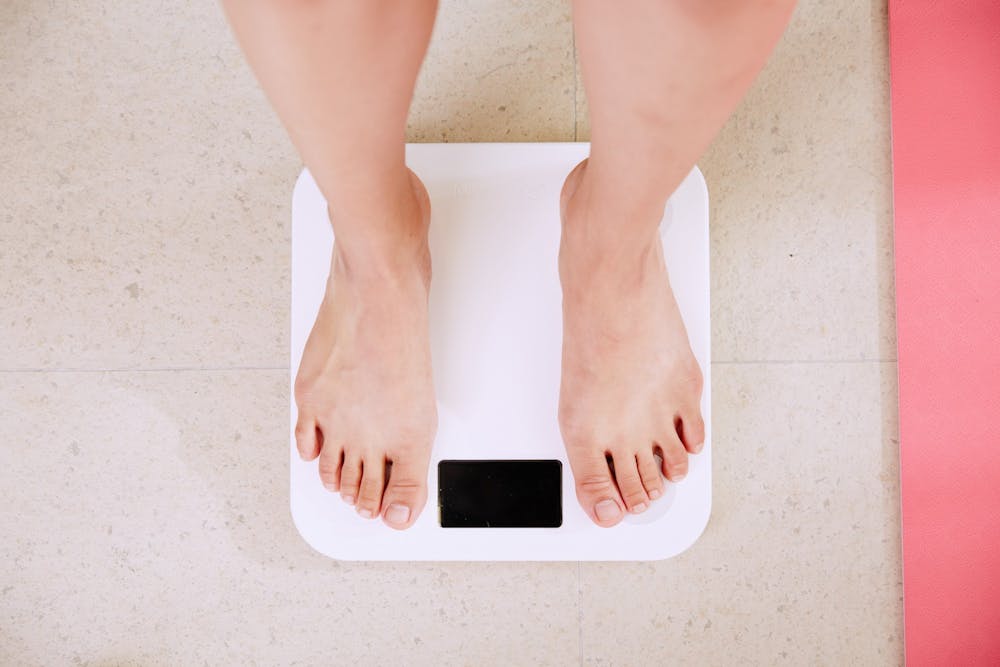Destiny Thomas, who will transfer to Ball State in the spring semester as a pre-nursing sophomore, said she struggled with maintaining a healthy weight throughout her childhood.
“I had to drink this vanilla milk to help me gain weight,” she said.
Thomas said noticed a difference when she became an adult and started gaining more weight. She said her waistline increased to the point her clothes weren’t fitting the same, and her coworkers started calling her names. That’s when she started exercising.
“I got made fun of for having a little bit of a double chin,” she said. “I think [exercising] was more for my mental health to help me feel better.”
When Adrian Reidy, sophomore health and physical education major, began studying at Ball State, he weighed 120 pounds.
One day, he said he looked in the mirror and realized he wasn’t happy with what he saw. So, he decided to change that.
Reidy said his physical conditioning class last year got him hooked on exercise. He started exercising three times a week, then progressed to four days, then five, and now he exercises six days a week. Sometimes, he also runs on when he has a day off.
“I’m definitely happier with where I’m at,” said Reidy who now weighs 145 pounds and has higher muscle mass.
While Reidy said he discovered his weight problem in college, high school students also struggle with misperceptions about their weight, according to Jagdish Khubchandani, health science professor, who conducted a study to learn about how students perceive their weight.
Khubchandani, along with other Ball State professors, analyzed recent Youth Risk Behavior Survey data — a survey administered every two years to high school students by the Centers for Disease Control and Prevention. Out of over 12,000 participants, nearly one third of surveyed students were classified as overweight or obese, and more than one fifth either underestimated or overestimated their own weights.
Obesity starts somewhere in school and educating students about what is normal is crucial to their future personal health, Khubchandani said.
“There has to be some intervention,” he said. “Clearly they don’t have the cognitive function to decide what’s healthy or what’s not healthy.”
When a physician or people in general simply tell others they need to watch their weight, this does not solve the problem, Khubchandani said.
“That’s not how people lose weight. That’s the dumbest thing to say to someone because I doubt any American would wake up and say, ‘I want to be obese tonight; it would be so nice if I could gain weight,’” he said. “People have distorted perception.”
Students who believed they were overweight when they were not used laxatives, pills, fasting and dieting methods they should not use, Khubchandani said. Students who didn’t recognize their expanding waistline did little to change that as well. He said these weight issues extend into adult life and often coincide with anxiety and depression.
“Perception is key in fixing peoples’ behavior. They have to be responsible, take ownership and understand that they have a problem,” he said.
Khubchandani suggested routine visits with a professional to remain informed about personal weight. He plans to begin working with similar data for college students to see how weight misperceptions continue throughout adulthood.
Without parental guidance, Khubchandani said college can be worse for students because they may neglect their bodies. Not all freshmen begin strict exercise regimens and healthy diets in college like Reidy did.
These days, Reidy’s workout schedule rotates through the week — exercising different parts of his body on different days to allow for a rest period in between exercises.
“College can be really stressful,” he said. “Finding something you can do to take yourself away from work, college, and stuff like that in general — I think that’s a big part of making it through.”
However, Reidy acknowledged that exercise isn’t everything. Watching what you eat is also a big contributor to maintaining health, he said.
“Last year I used to drink two or three pops a week, and then I realized it was making me feel really bad, really slow and really sluggish,” he said. “So, I completely cut it out. I was really tired for about four days and then I was fine.”
Reidy said people don’t have to know everything about nutrition facts, but they should be able to distinguish what foods are healthy. He suggested Ball State’s NetNutrition website for learning more about the food served on campus.
Thomas said she has lost 12 pounds so far. She has cut soda and fast food from her diet, and she attends gym classes in Hartford City, Indiana.
“A lot of the girls at work that were calling me names — they're wanting to go to the classes that I go to, to try it to help them lose weight,” she said.
Contact Bailey Cline with comments at bacline@bsu.edu or on Twitter @BaileyCline.




